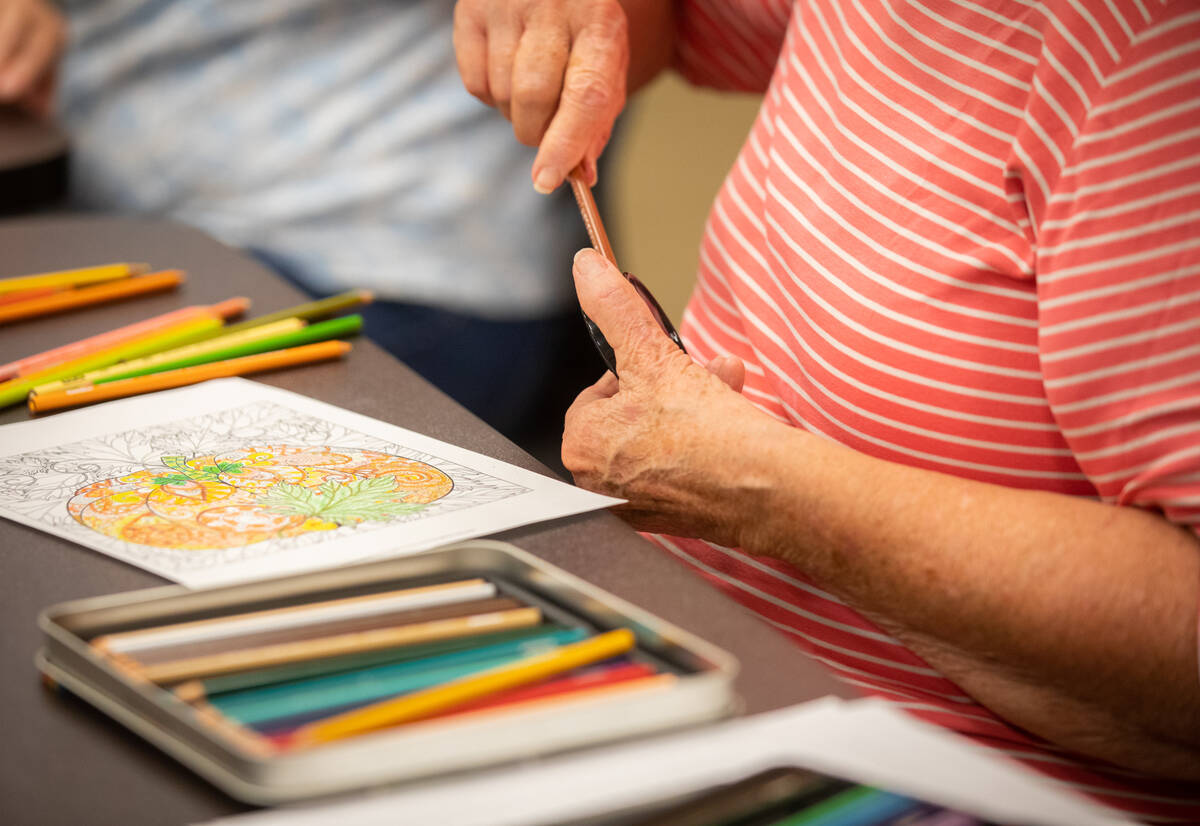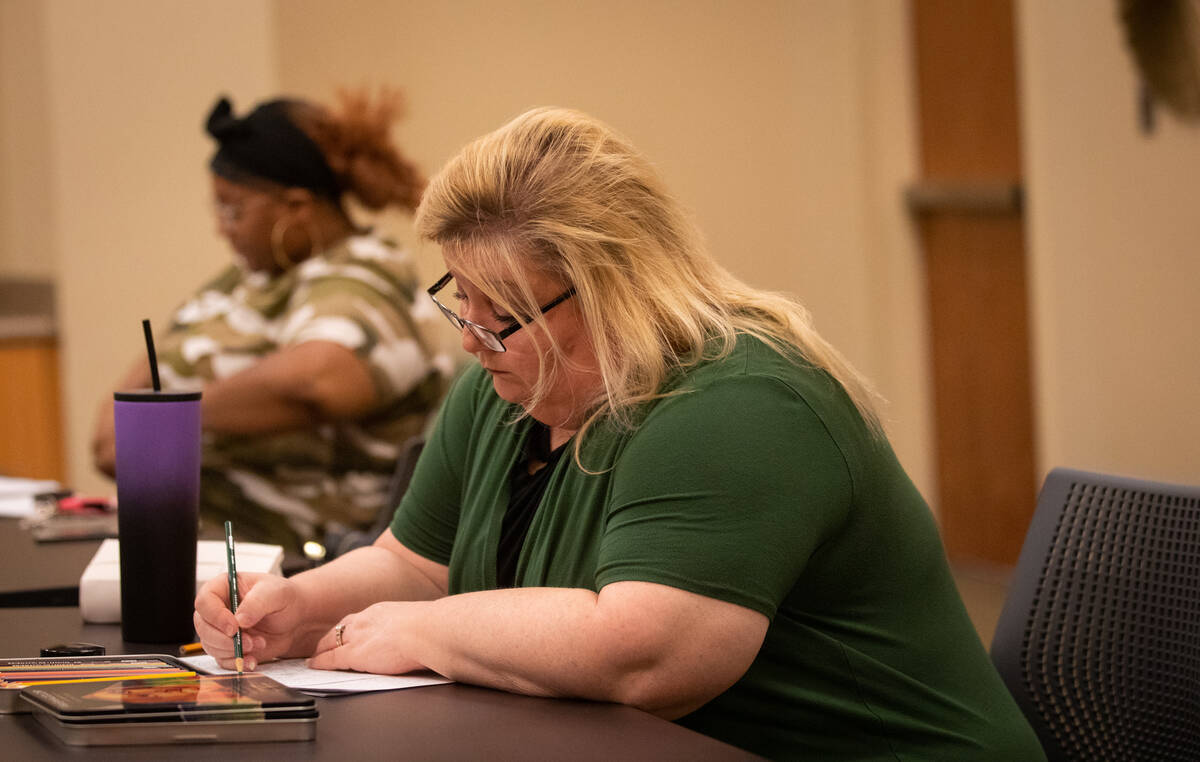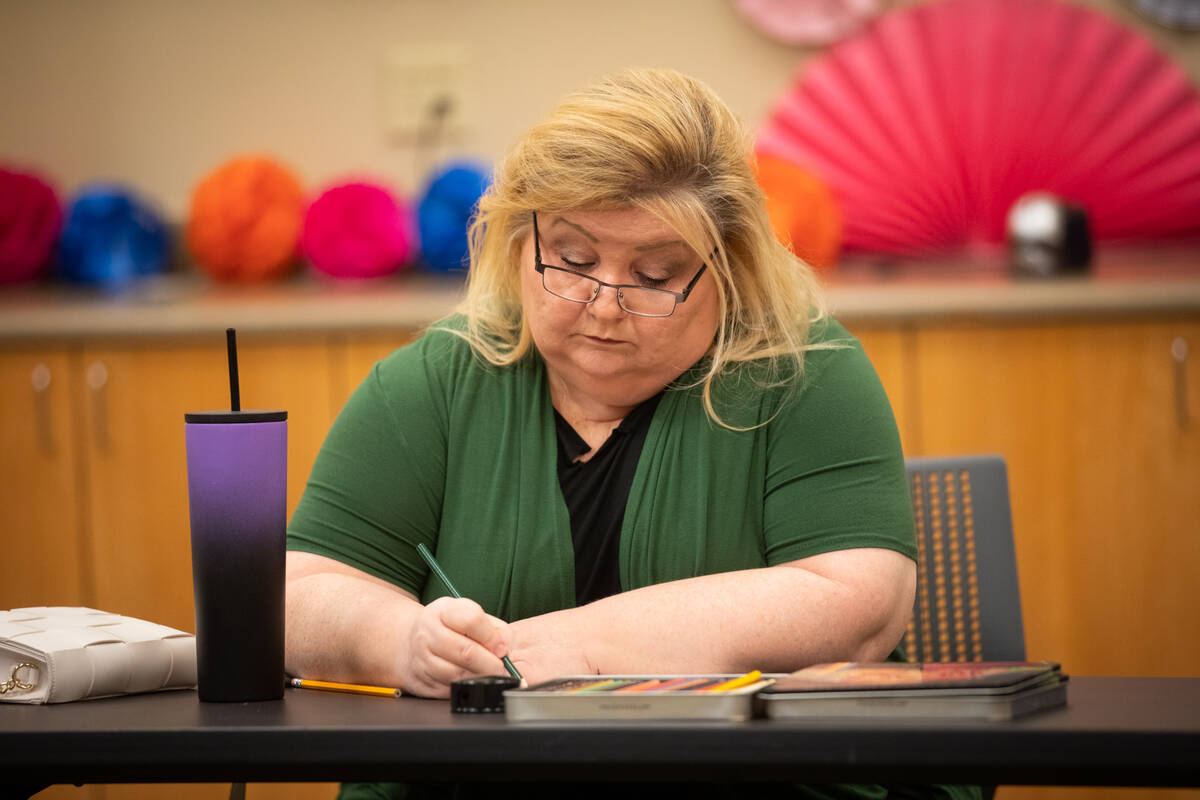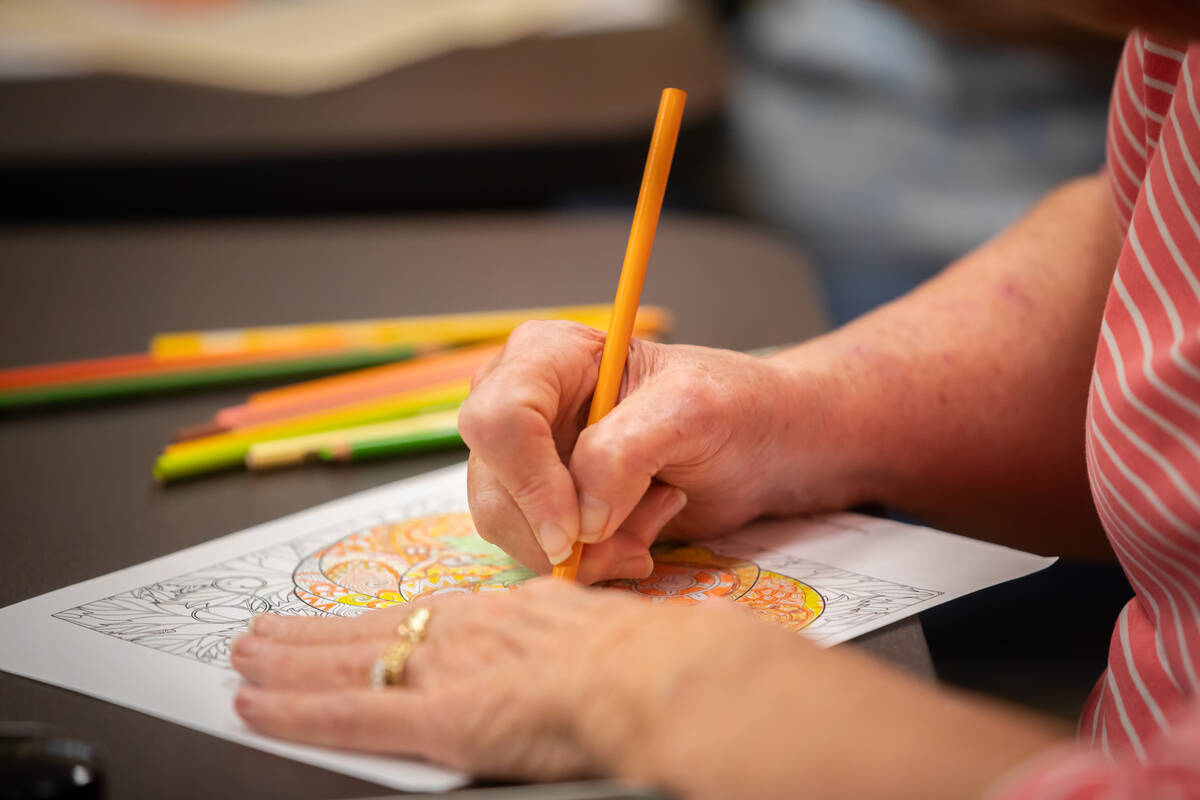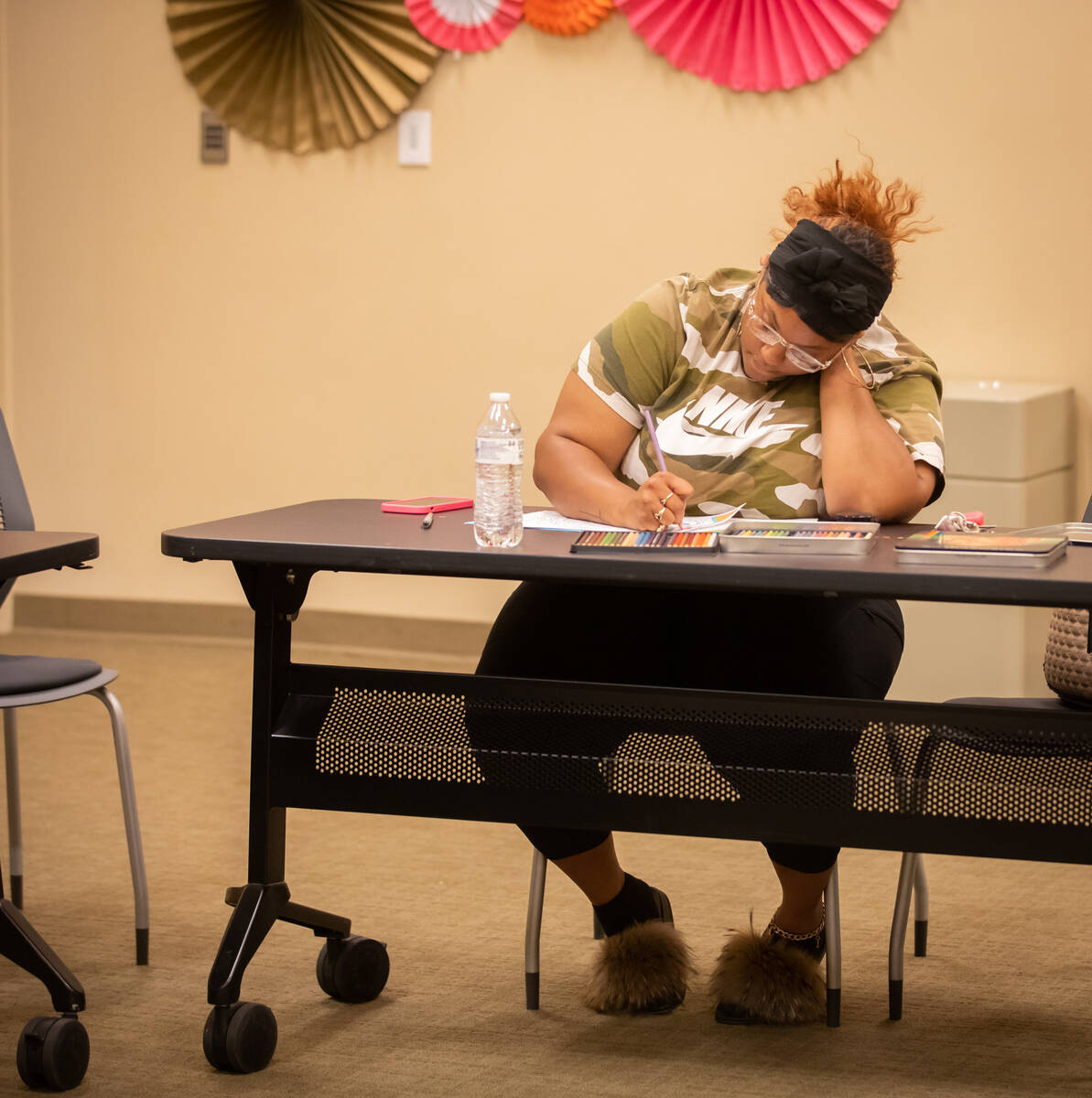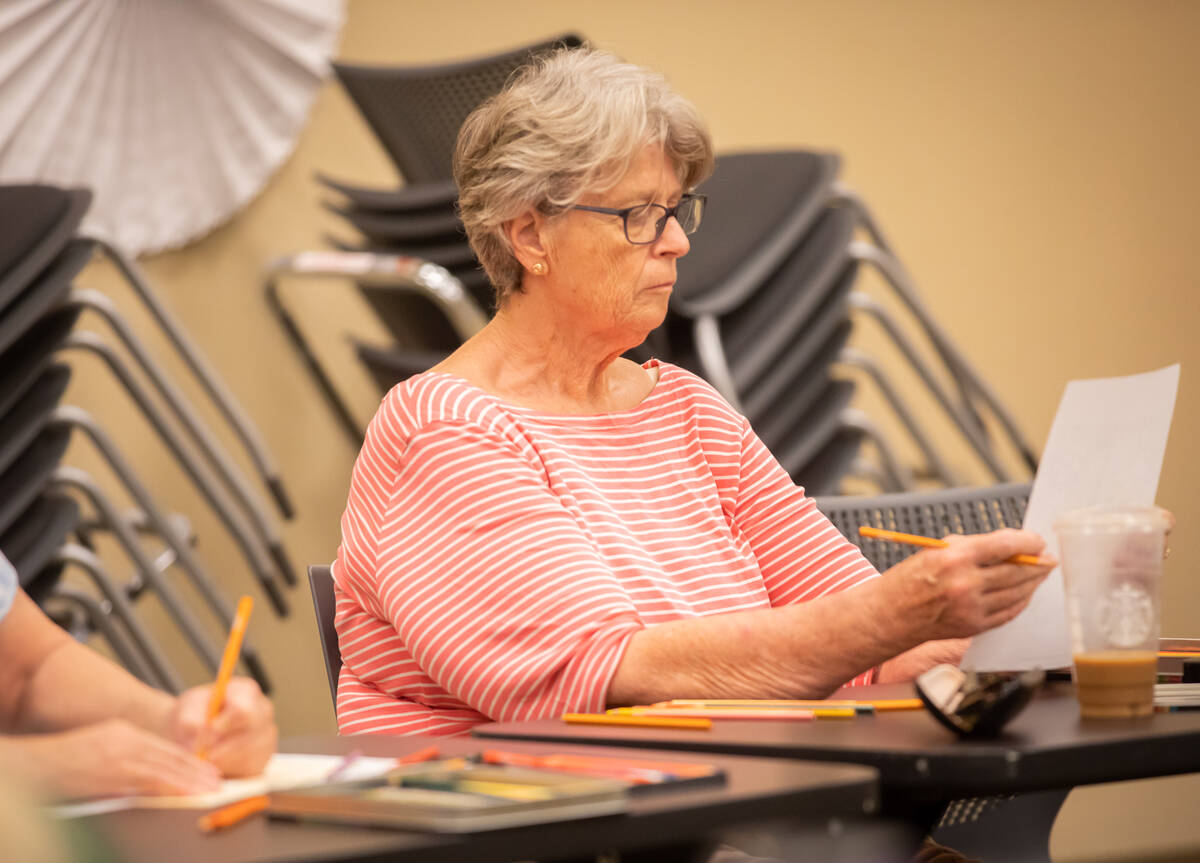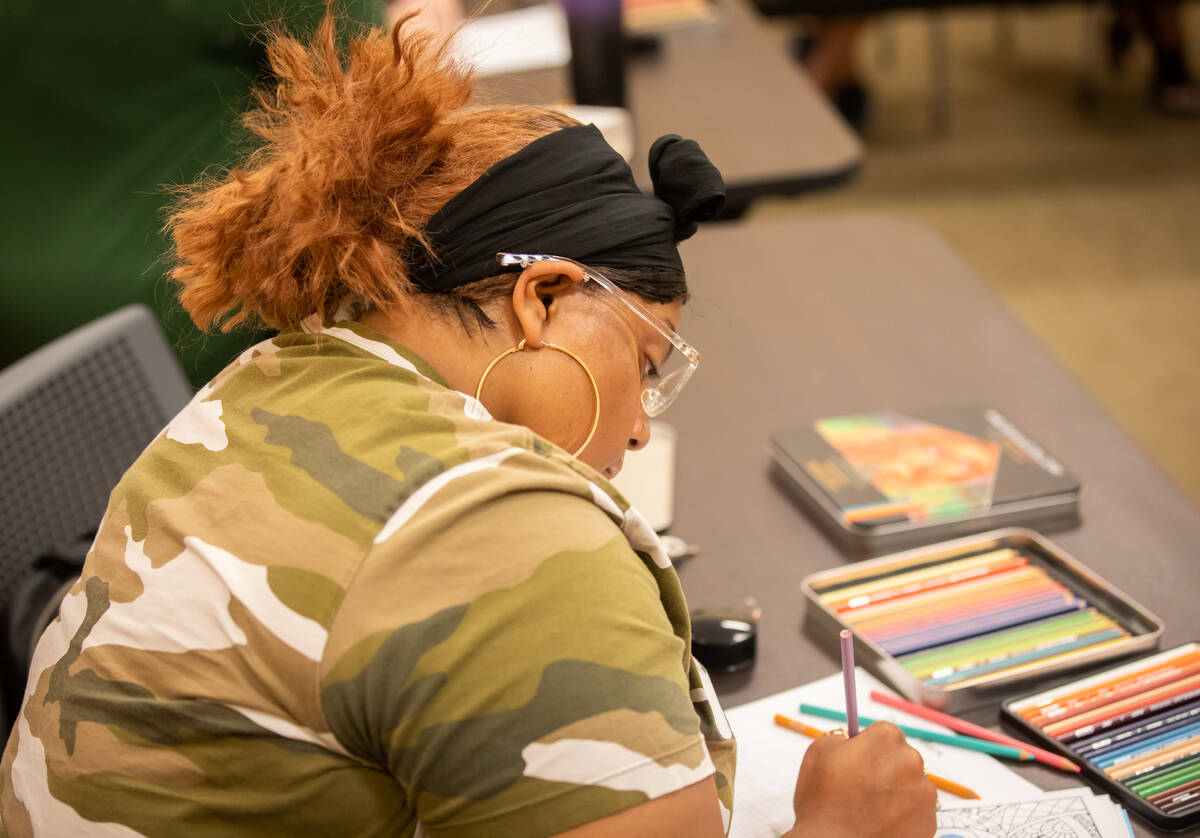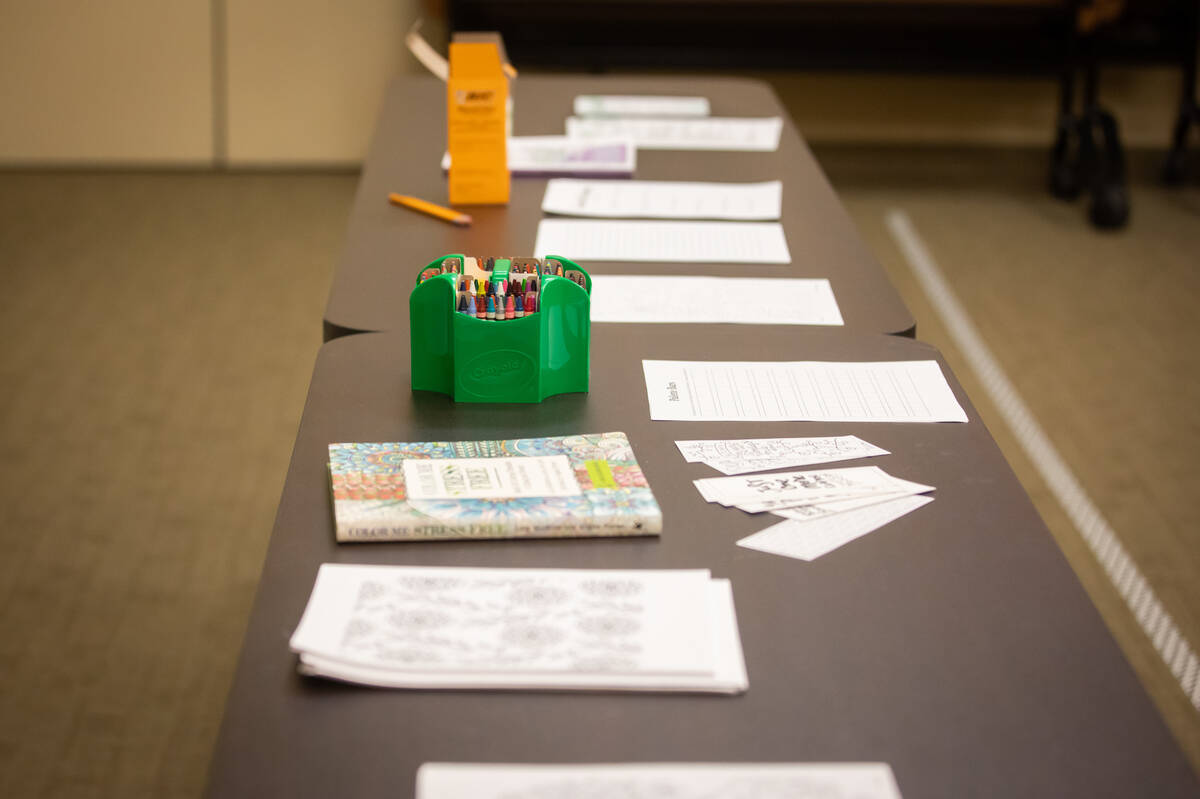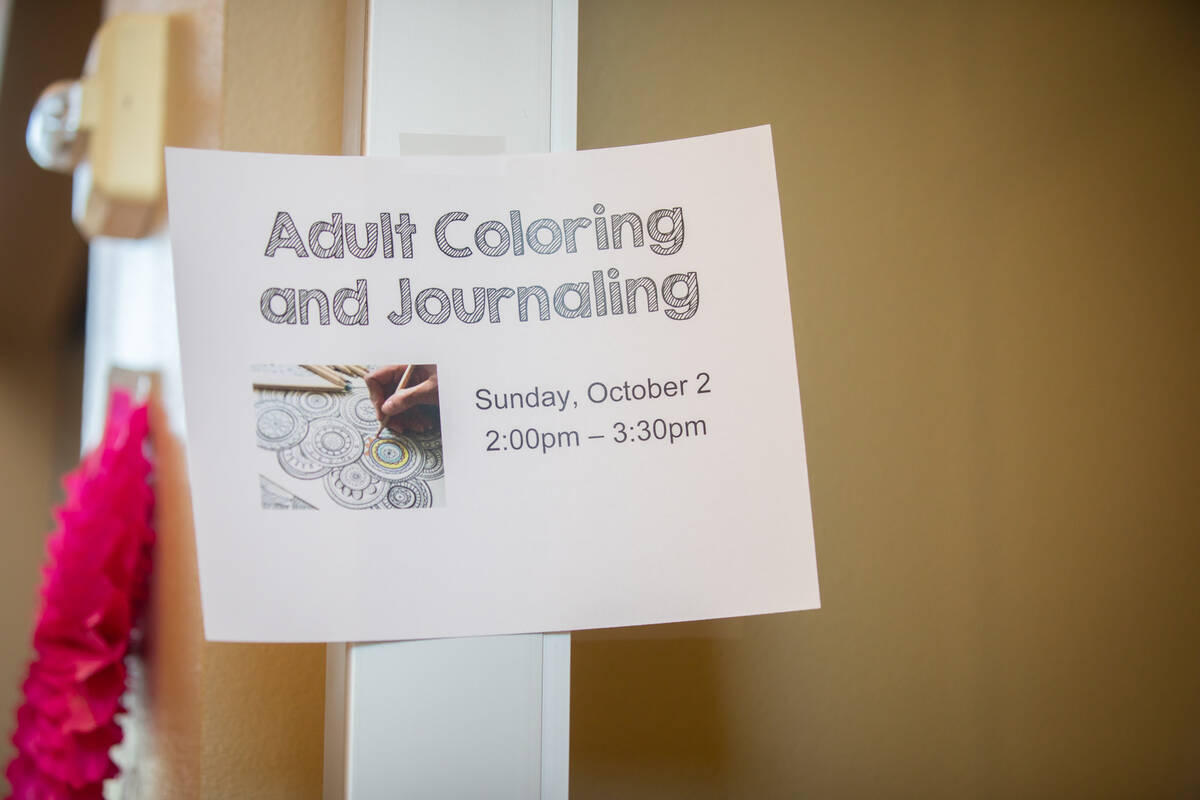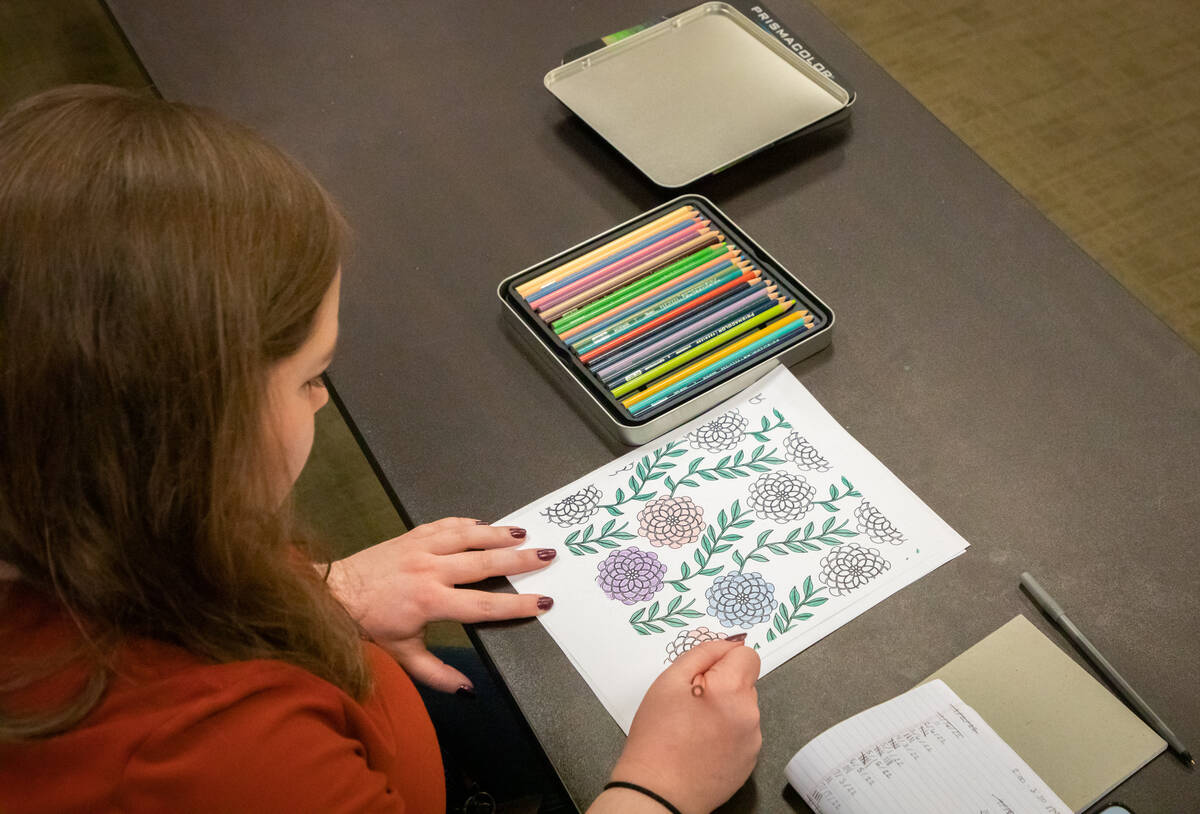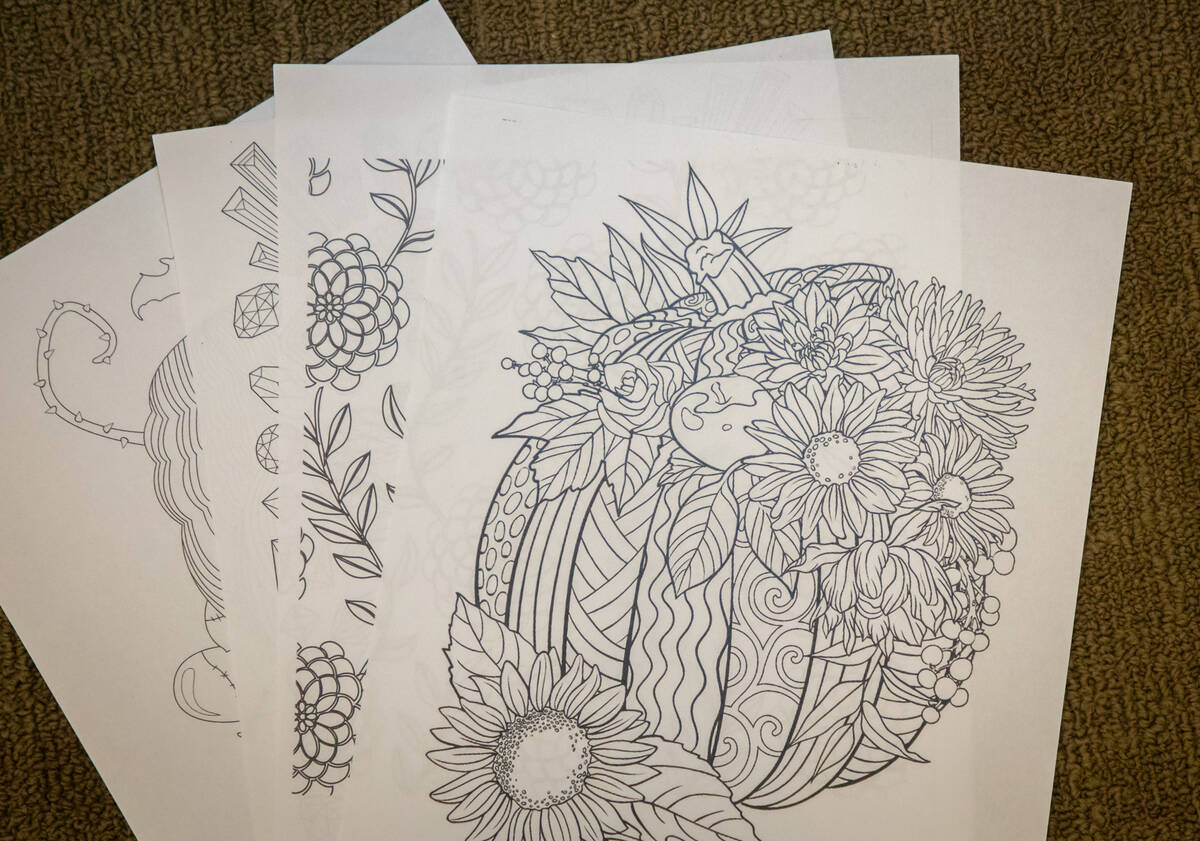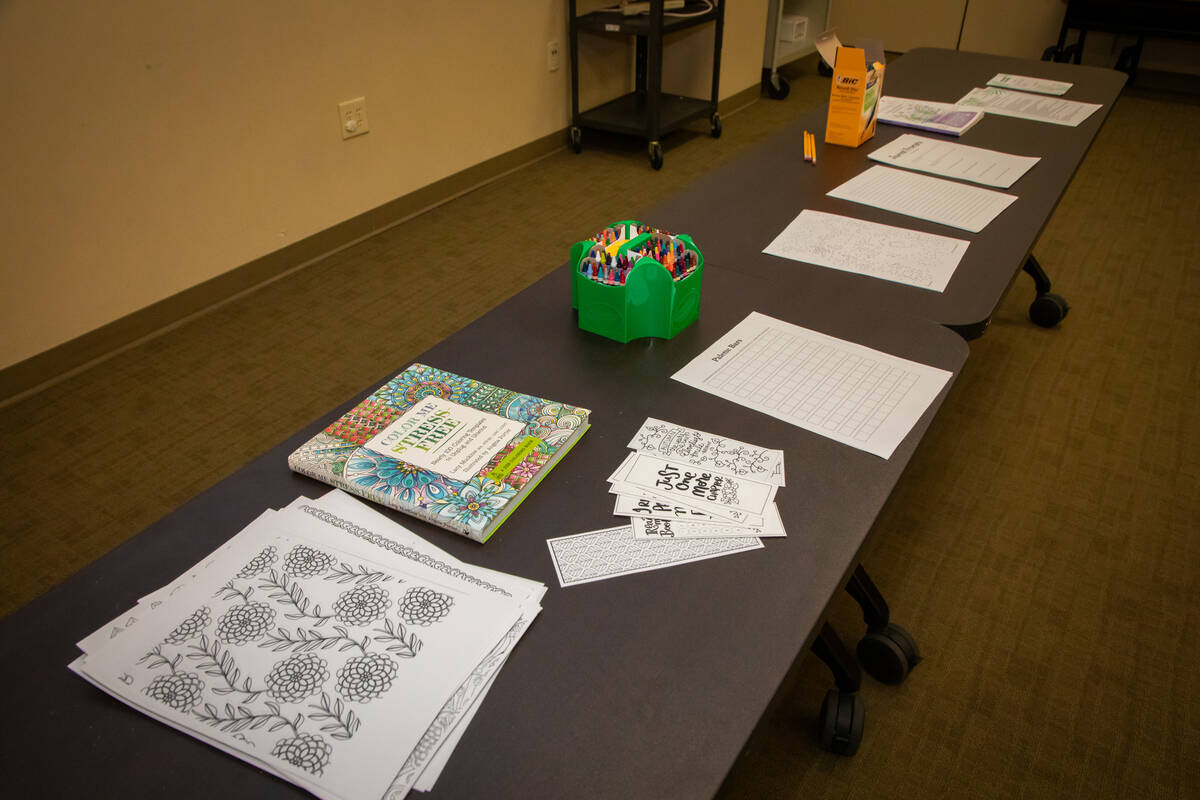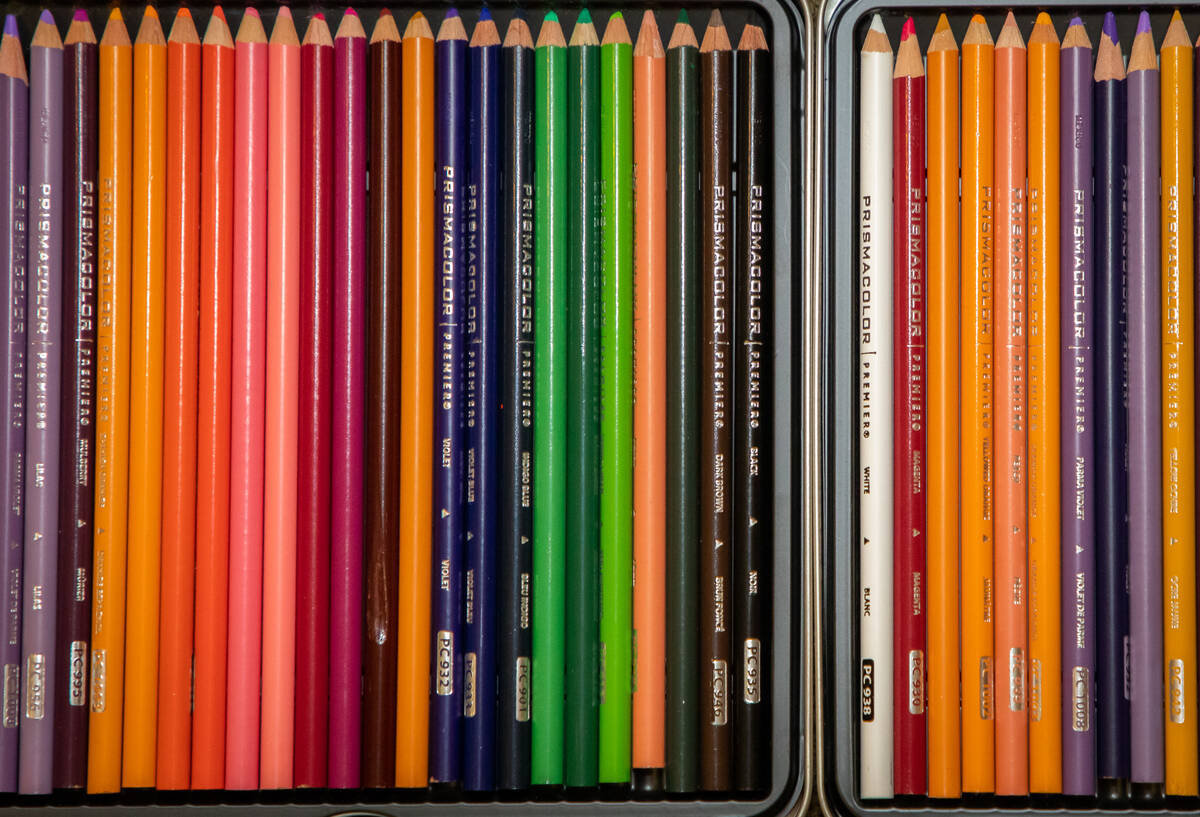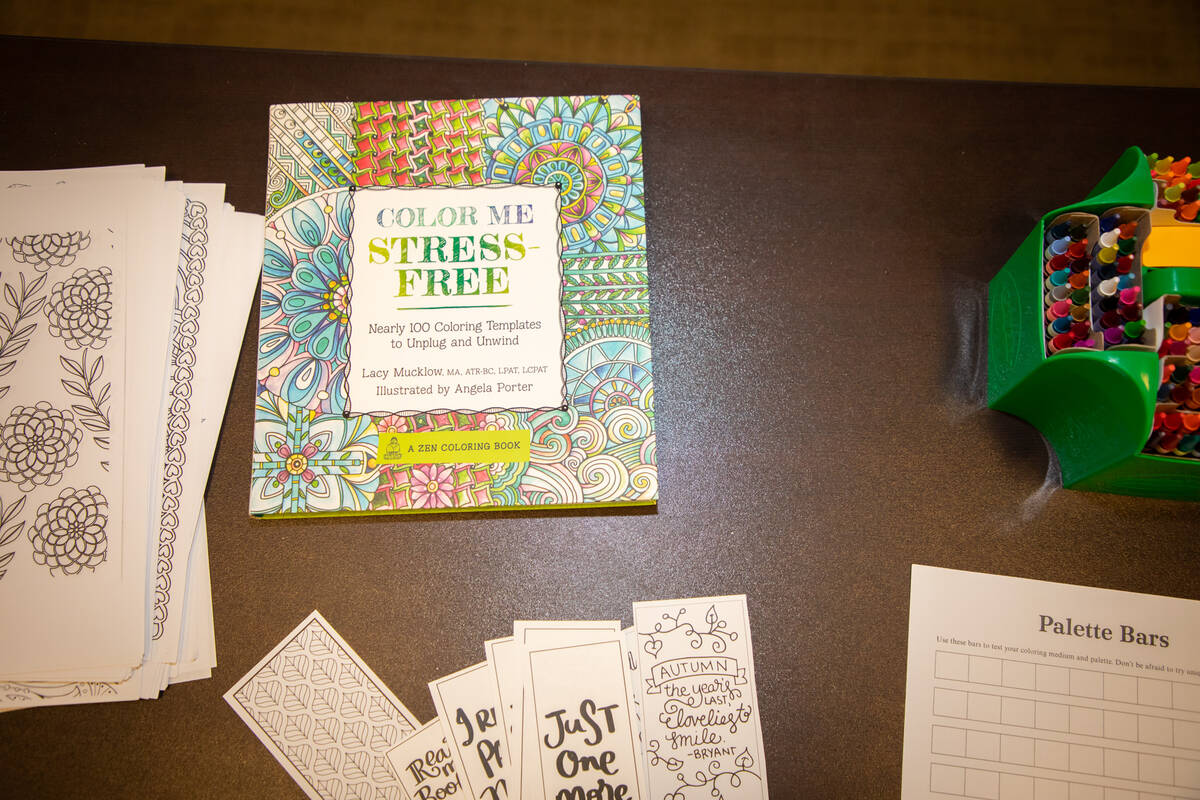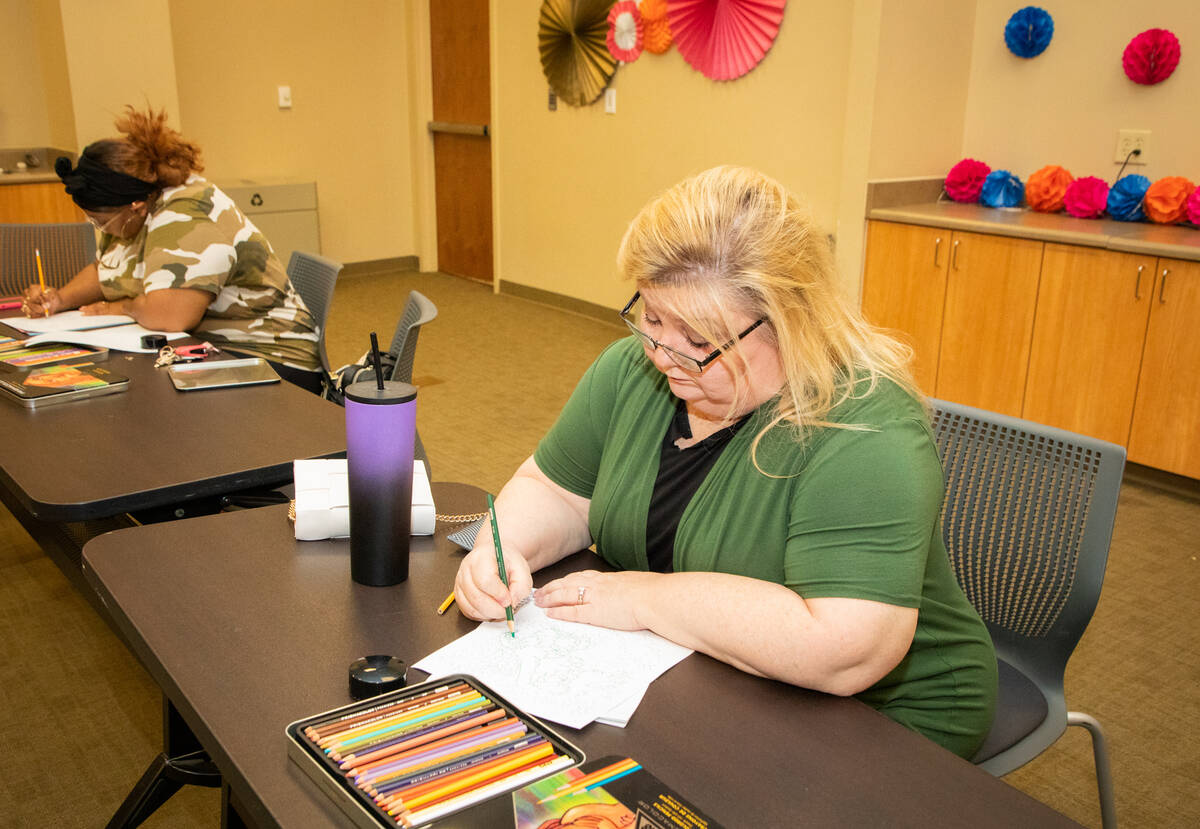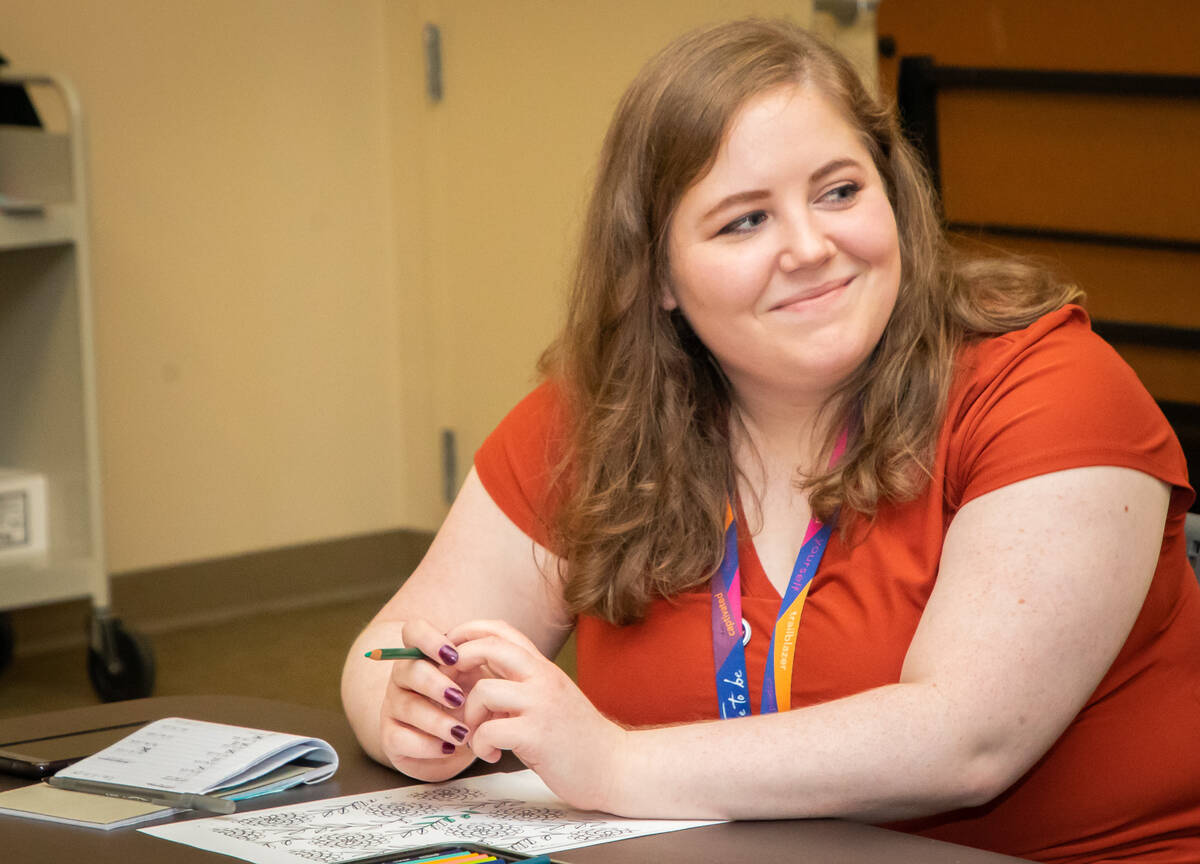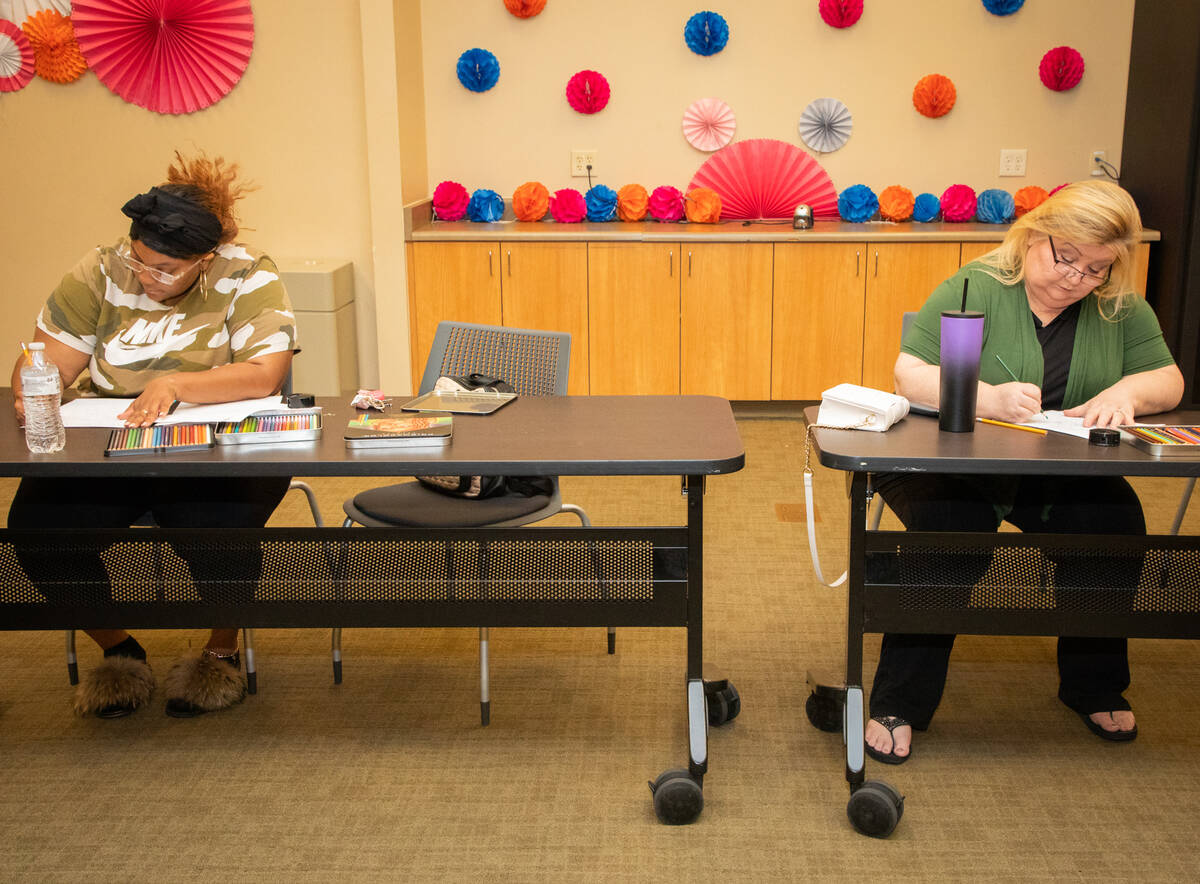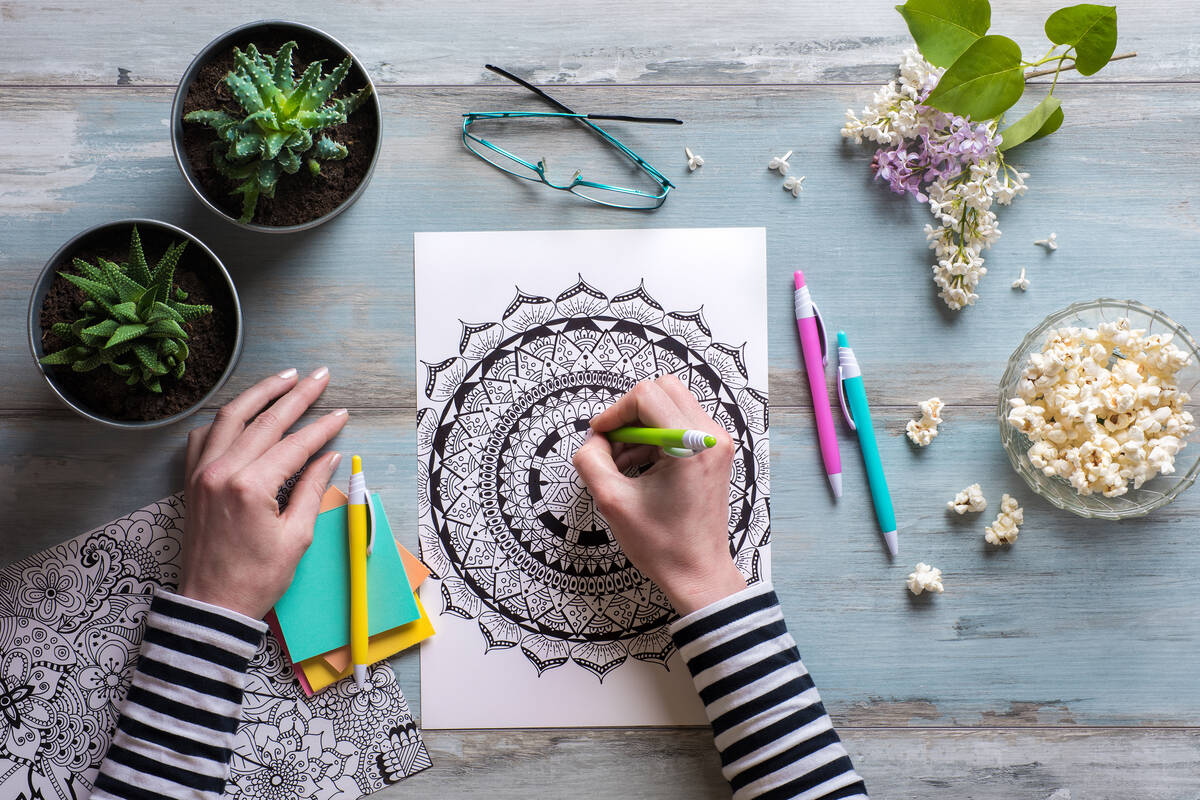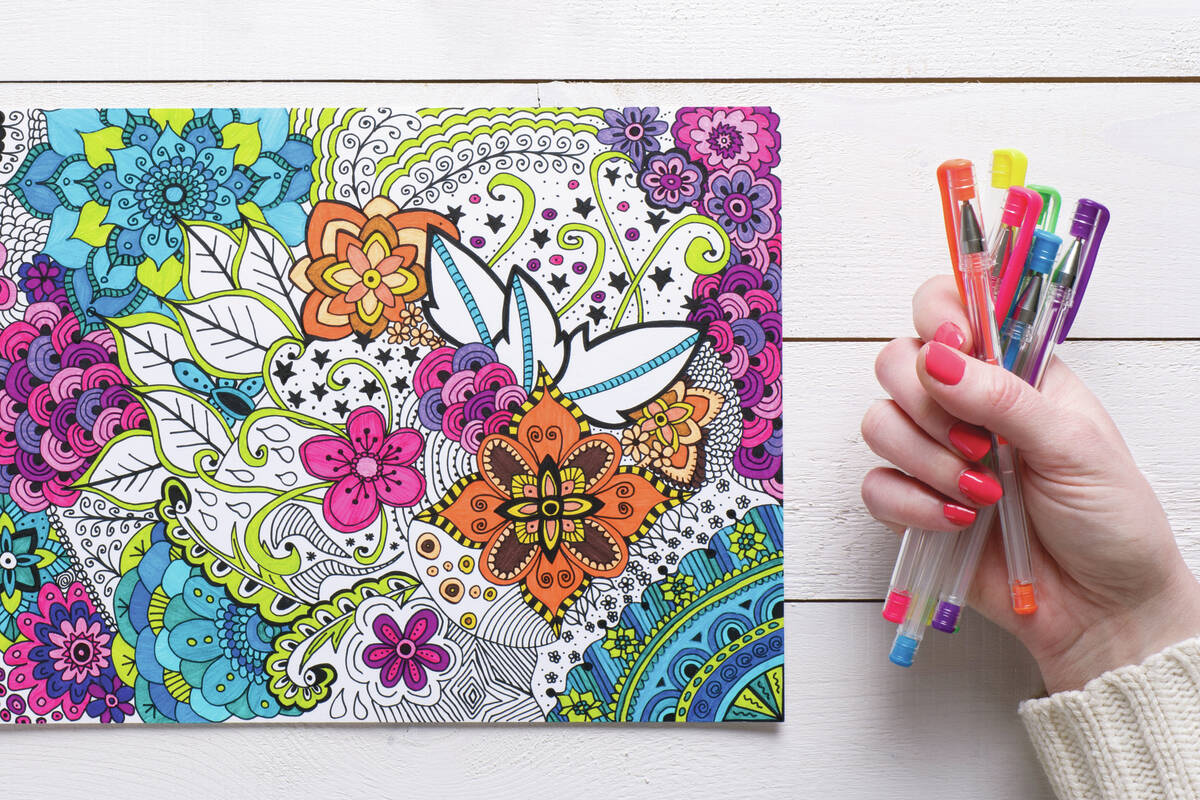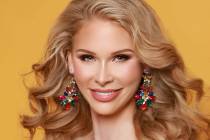Adult coloring helps reduce stress, manage anxiety
A handful of grown-ups sit quietly in a meeting room at the Centennial Hills Library, happily immersed in an activity that combines pleasant childhood memories with present-day adult benefits.
They’re coloring, using multi-hued pencils on black and white pages bearing designs more intricate than any they saw in grade school, and just why they’re so deeply involved in what some might consider literal child’s play can be seen in the blissed-out concentration they bring to their task.
Call it a hobby or nostalgia or even a form of meditation, but many adults are embracing coloring as a way to reduce stress, manage anxiety and promote relaxation in troubled times.
“As a therapist, I have coloring books in the office,” said Dr. Donna Wilburn, a licensed marriage and family therapist.
In fact, Wilburn added, “I often use them myself.”
The deliberate, focused but low-stress process of coloring can help deflect attention away from ourselves and all that is stressing us out, satisfy our creative urges and reconnect us with a pleasurable activity from our past.
Coloring calms the nervous system, Wilburn said. That can make the mind more amenable to resolving issues, help us replace negative thoughts with positive ones, reduce stress and anxiety and promote a general sense of increased relaxation.
Given the mental stresses of the past few years, she added, adult coloring may simply be “popular now because people need it.”
‘You can let go’
Coloring books aimed at an adult audience actually have been available for at least a decade, but Wilburn has noticed more of them available over the past five years or so. And while the potential mental health benefit of adult coloring hasn’t been researched as much as, say, meditation, the benefits of art therapy have long been recognized, she said.
Dr. Michelle Paul, executive director at UNLV PRACTICE, the university’s community mental health training clinic, said the utility of adult coloring is associated with the notion of mindfulness, the state of “being present in the moment and doing so nonjudgmentally.”
Mindfulness involves “staying focused on the current moment,” Paul said, versus “letting the mind wander all over our mistakes.”
Coloring can help promote mindfulness because it involves “repetition of a calming movement,” Wilburn said. “When you’re coloring, there’s a lot of repetition and it’s monotonous. It doesn’t require a lot of active thought process, so you can let go.”
The result can be something akin to a calm meditative state. “It’s not just, ‘Oh, look, this reminds me of being in kindergarten,’ ” said Wilburn, who sometimes asks clients who are suffering from anxiety to set aside 15 minutes every morning for coloring.
Several Las Vegas-Clark County Library District branches offer regular adult coloring sessions. The Centennial Hills Library’s gatherings offer sessions that, in addition to coloring, include journaling and extreme connect-the-dots activities.
“I think coloring puts you into a more meditative state,” says multiservice assistant Sharie Heier, who facilitates the sessions. “I think everyone is stressed out right now. This gives them a place to unwind.”
A mellow, welcoming vibe is created by soft music playing in the background. Supplies — including sets of colored pencils and coloring and connect-the-dots pages — are provided at no charge.
‘Quieting your mind’
Heier typically hosts about a half-dozen participants each session, some of whom have become regulars. “Almost every time there’s at least one new person checking it out,” she said.
Heier remembers seeing books that “actually said ‘adult coloring books’ ” in art supply shops several years ago. Now, coloring books designed specifically for adults are available in supermarket checkout lines and through more mainstream retailers.
Coloring is the most popular activity at Centennial Hills Library’s gatherings, Heier said. She figures the appeal of the sessions is “coloring together and, just, non-stress.”
Malinda Henry attended her first session at the library a few weeks ago, “but I’ve been to other ones in the past.”
She’s been coloring off and on for about two years, and her coloring preferences lean toward mandalas, intricate geometric patterns that are a staple of adult coloring books.
“It’s a way of quieting your mind,” said Henry, a retired schoolteacher.
After retiring, “one of the things I noticed is I didn’t do any more art,” she said. “I missed it.
“Coloring is very comforting. And if you have grandkids it’s fun to color with them. It quiets your mind because you’re focusing on a moment.”
Jackie Heier has been attending Centennial Hills Library’s coloring sessions for about a year. She’s Sharie Heier’s mom and a preschool teacher who likes that here, “I can use colors I don’t normally use. I guess you could say (this) gives you a little more freedom.”
She finds coloring to be a good tool for focusing her mind. “It’s even something I can do while listening to something else I need to keep my mind on.
“It does work for me. It just gives my mind kind of a break from what my mind is already busy on. And it just takes me away from life for a little bit.
Sharie Heier often sees the benefits of coloring reflected in participants’ demeanor.
Sometimes, as a session ends and artists mentally disengage from their work, “it’s just like they’re in a bit of a trance.”



